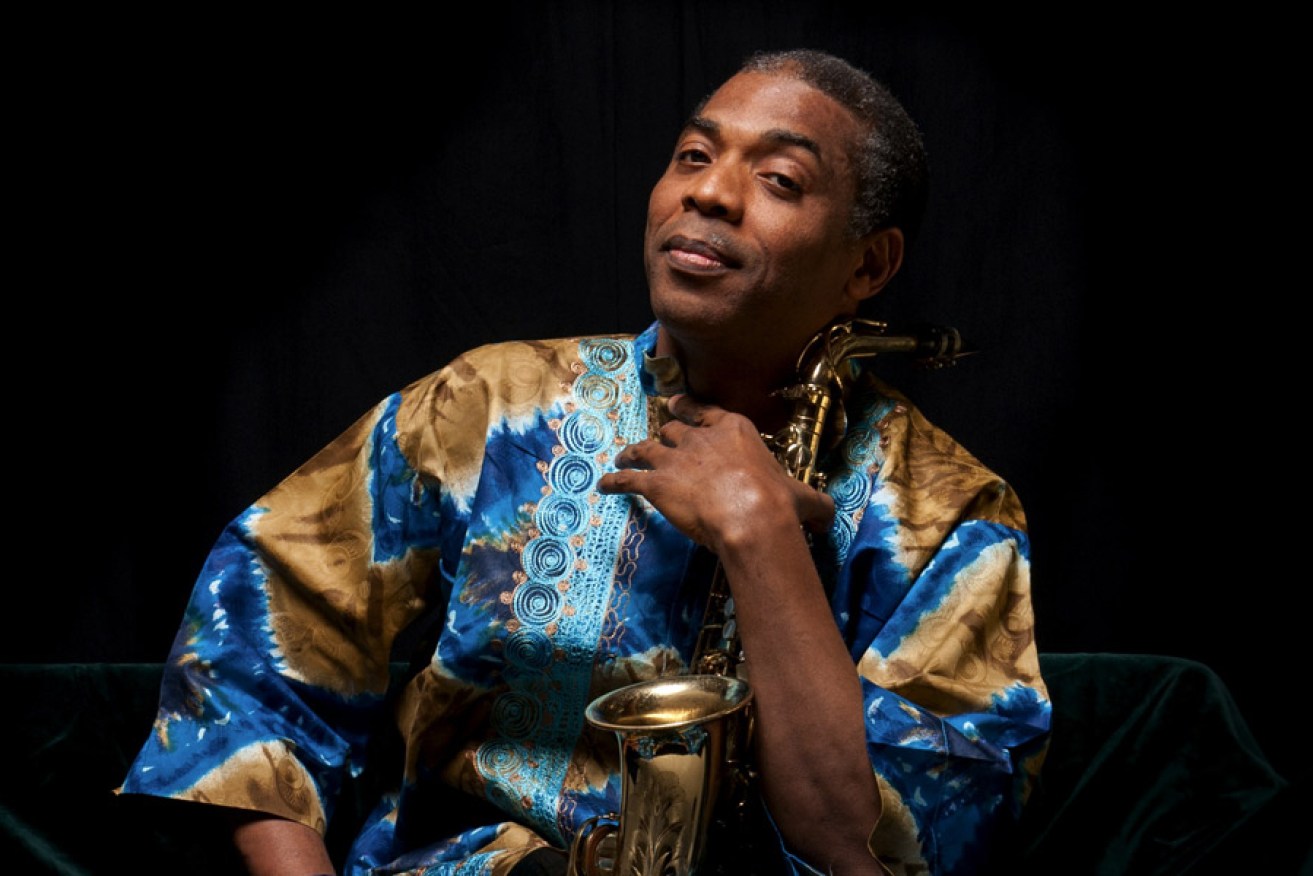Afrobeat musician and 2014 WOMADelaide headliner Femi Kuti is up for a 2014 Grammy Award, but he has no intention of travelling to Los Angeles to attend this weekend’s glittering ceremony.
The singer-saxophonist tells InDaily it’s not because he’s peeved that he’s been nominated four times and never won – as some music websites suggest – but simply because it costs so much to travel there from his Nigerian home.
“People don’t understand that today the record companies don’t pay … for me to pay that money and go to America would be huge.
“If I go and I spend all that money and I don’t win, I will have a heart attack,” he says, laughing loudly.
Instead, he will be represented by his older sister, who will already be in America for the opening of a documentary about their father, Fela Kuti, much-celebrated pioneer of the “political funk for the people” style of music known as Afrobeat. And if it is a case of fourth time lucky and Femi’s album No Place for My Dream does scoop the Best World Music Album Category, it sounds like there will celebrations aplenty.
“If I win, I am sure Nigeria will erupt with joy. People will just go mad.”
He cracks up again: “If I did win, I think I would probably have a stroke as well!”
Laughter seems to come easily to Kuti, a fact that is perhaps surprising considering the weighty political message of his music, which rails against inequity, poverty and corruption in his own country and around the world.
The charismatic eldest son Fela Kuti, Femi began playing saxophone with his father’s band at just 15, going on to form his own group called The Positive Force in 1986. His WOMADelaide bio describes their sound as “edgy Afrobeat with biting lyrics, pulsating rhythms, sax-driven jazz-funk and phenomenal dancers”.
Kuti says his aim with No Place for My Dream was to get back to “the essence of Afrobeat”, which he describes as the legacy he inherited from his father and the feelings he had as a young boy listening to the powerful music.
He also sought to focus more on global issues, rather than just those of Nigeria, with the title inspired by his youthful dream for peace and a world free of war and corruption. Tracks such as “No Work No Job No Money” and “Nothing to Show for It” don’t exude positivity, but Kuti believes strongly in the power of music to bring about change.
“When you hear people complaining about climate change, the population of the world, the amount of wars happening, the way terrorism is going, the way religion is going, and the way the future is going because of religion, then I am very pessimistic about the future,” he says.
“But I have to remain optimistic about the future because I am a fighter and I will keep on fighting for a better world. … I always look deeper inside me to find that optimism.
“Music doesn’t have to be political to influence change … a good love song can do that. A good love song can bring harmony and peace and love.
“Music plays a very important role universally in bringing about peace and harmony, consciously and unconsciously.”
Kuti says he never wanted to play any music other than Afrobeat, but has sought to forge his own style while remaining respectful of his famous father’s legacy.
“I never wanted to play it exactly as my father did – I wanted to find my own voice and my own style.
“I want my own respect, I want my own pain; I will cry my own tears and find my own joy. I want to be my own person.”
Now it seems the legacy will continue onto a new generation, with Femi Kuti’s 18-year-old son a pianist and singer who is currently studying classical music. His style, says Kuti, is more jazz – “like Quincy Jones”.
“His music is very peaceful … I think he will take it to a different level to where I am at or where my father was at.”
Femi Kuti will be performing one show only at WOMADelaide on March 10.
More WOMADelaide stories:
Fat Freddy’s soulful synthesis
The many passions of Billy Bragg
Tim Flannery joins Planet Talks
Peter Garrett to return to WOMADelaide
WOMADelaide announces 2014 line-up





